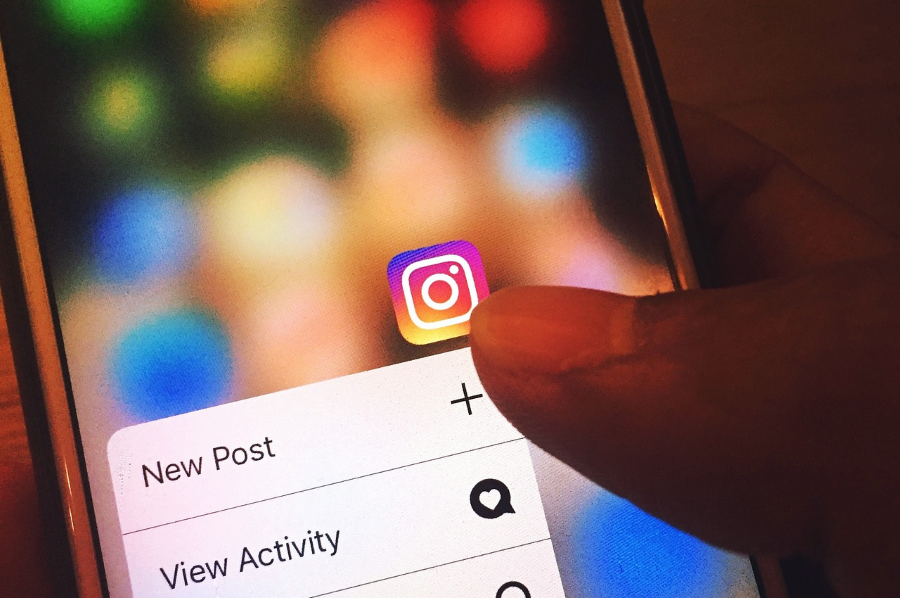Choosing the Right Social Media Platform for Your Business: A Guide for Owners
by Kerry Baker on 13-Aug-2025 12:30:00

Most business owners agree that social media is an important marketing channel for making sales and building relationships with customers, but there isn’t a solid consensus about the best social media platform to use. This is positive, because ‘the right social media platform’ is very much a subjective choice. Each platform has its own strengths and caters to distinct audiences, making it important to allocate your time and resources wisely. This article introduces the key platforms used by UK businesses to help you determine the one that aligns best with your business goals.
Does It Matter Which Platform You Choose?
Yes and no. All social media platforms have the potential to deliver revenues and a good ROI. However, investing your time and budget in the wrong platform can mean wasting time on customers who are less to convert, and missing valuable opportunities. The right social media channel is the one that connects you the best with your target audience, amplifies your messages, and drives measurable results, whether you are looking for lead generation, greater brand awareness, or customer engagement. In our experience, it’s best to do one or two social platforms really well, than to stretch your resources too thinly across multiple platforms. A focused approach always produces better results.
How To Evaluate Your Options
Who Is My Target Audience?
Define your ideal buyers by demographics, including age, location, interests, purchasing behaviour, job position, and so on.
What Are My Objectives From Social Media Marketing?
For example, is your main focus brand awareness, lead generation, or developing business authority in your sector?
What Resources Can I Dedicate a Social Media?
Consider whether you have the in-house capacity to devote to a consistent social media campaign or need external support for content creation and advertising.
Platform Overview And Strategies
1. LinkedIn – The B2B Leader
UK Users: Around 42 million
Primary Demographic: Professionals and decision-makers aged 25-64
LinkedIn is a powerhouse for professional networking and B2B marketing, and is ideal for industries like consulting, recruitment, and software services. LinkedIn makes it easy to connect with decision-makers and showcasing your expertise in order to drive leads and sales.
Opportunities: Video content, particularly live-streams such as webinars, are growing in popularity. Additionally, LinkedIn’s AI capabilities have improved content targeting, ensuring that posts reach relevant audiences. Thought leadership articles, industry news and trends updates, and product/service insights are also popular on LinkedIn.
Best practice: Use LinkedIn for sharing valuable resources, such as whitepapers or ebooks, to establish your business as an industry expert.
2. Instagram – Visual Storytelling And E-Commerce
UK Users: Approximately 35 million
Primary Demographic: Consumers aged 18+
Instagram thrives on visual storytelling, making it a top choice for businesses with products or services that can be showcased visually. The platform is particularly effective for lifestyle, fashion, food, and creative industries.
Opportunities: Augmented reality (AR) filters and Instagram Reels present innovative ways to engage your audience. Instagram’s social commerce functionality continues to grow, allowing businesses to tag products and link directly to purchase pages. In terms of content, photos, reels, carousels, and bite-sized visual stories allow you to maximise touchpoints with your customers without the risk of overloading them.
Best practice: Use high-quality visuals and focus on User-Generated Content (UGC). Engaged customers’ posts act as testimonials and strengthen trust in your business.
3. Facebook – Versatility And Local Targeting
UK Active Users: 37 million
Primary Demographic: Adults aged 35-44 (core user base)
Facebook offers the most detailed customer targeting options of any platform, making it invaluable for SMEs. With exceptional tools available for creating hyper- tailored advertising campaigns, Facebook is a great platform for building customer loyalty and general brand awareness.
Opportunities: Facebook is a robust platform for promoting events, retargeting website visitors, and, for B2C businesses, for remarketing abandoned baskets using its Facebook Pixel integration.
Best Practice: For local businesses, use Facebook’s location targeting feature to draw in customers within your region.
4. Pinterest – Creativity Meets Intent
UK Users: 17.1 million
Primary Demographic: Predominantly women aged 25-34
Pinterest is a niche platform, ideal for B2C SMEs in creative industries like home décor and improvement, graphic design, jewellery, and fashion. Users come to the platform for inspiration, giving your products an opportunity to capture attention when customers are already in the mindset to purchase.
Opportunities: Pinterest’s ability to link visuals to blog articles, e-commerce sites, or landing pages creates direct pathways to boost traffic to your website. As a visual-first platform, pins displaying attractive and relevant imagery tend to perform best
Best Practice: Create “how-to” pinboards or themed collections showcasing your product range to attract potential customers.
What Next?
Whether your goal involves professional networking, visual storytelling, or increasing your share of a niche market, there is a social media platform that’s right for your business. For more information about social media marketing, please claim your free copy of our guide, Social Media For Business, today.
- Inbound Marketing (SEO, PPC, Social Media, Video) (832)
- Strategy (368)
- Sales & CRM (197)
- Marketing Automation & Email Marketing (192)
- Business Growth (168)
- Website Design (162)
- Hubspot (141)
- Lead Generation (117)
- Google Adwords (100)
- Content Marketing (94)
- Conversion (53)
- Case Studies (49)
- News (47)
- Ecommerce (39)
- Webinars (36)
- SEO (27)
- AI (21)
- Events (19)
- LinkedIn Advertising (17)
- Video (17)
- Video Selling (15)
- Software training (13)
- Niche business marketing (11)
- The Digital Prosperity Podcast (10)
- Facebook Advertising (8)
- HubSpot Case Studies (7)
- Web Design Case Studies (1)
- February 2026 (9)
- January 2026 (12)
- December 2025 (15)
- November 2025 (6)
- October 2025 (17)
- September 2025 (16)
- August 2025 (14)
- July 2025 (14)
- June 2025 (5)
- May 2025 (19)
- April 2025 (15)
- March 2025 (13)
- February 2025 (13)
- January 2025 (8)
- December 2024 (2)
- November 2024 (4)
- October 2024 (21)
- September 2024 (4)
- August 2024 (8)
- July 2024 (14)
- June 2024 (16)
- May 2024 (25)
- April 2024 (15)
- March 2024 (18)
- February 2024 (5)
- January 2024 (10)
- December 2023 (6)
- November 2023 (10)
- October 2023 (13)
- September 2023 (12)
- August 2023 (14)
- July 2023 (13)
- June 2023 (14)
- May 2023 (15)
- April 2023 (13)
- March 2023 (14)
- February 2023 (13)
- January 2023 (15)
- December 2022 (13)
- November 2022 (6)
- October 2022 (8)
- September 2022 (22)
- August 2022 (15)
- July 2022 (13)
- June 2022 (16)
- May 2022 (14)
- April 2022 (16)
- March 2022 (17)
- February 2022 (11)
- January 2022 (8)
- December 2021 (6)
- November 2021 (7)
- October 2021 (11)
- September 2021 (10)
- August 2021 (7)
- July 2021 (7)
- June 2021 (4)
- May 2021 (4)
- April 2021 (1)
- March 2021 (3)
- February 2021 (5)
- January 2021 (4)
- December 2020 (7)
- November 2020 (6)
- October 2020 (5)
- September 2020 (9)
- August 2020 (18)
- July 2020 (17)
- June 2020 (17)
- May 2020 (10)
- April 2020 (21)
- March 2020 (24)
- February 2020 (21)
- January 2020 (12)
- December 2019 (23)
- November 2019 (12)
- October 2019 (14)
- September 2019 (16)
- August 2019 (15)
- July 2019 (13)
- June 2019 (6)
- May 2019 (8)
- April 2019 (4)
- March 2019 (2)
- February 2019 (2)
- January 2019 (2)
- December 2018 (3)
- November 2018 (24)
- September 2018 (11)
- August 2018 (9)
- June 2018 (3)
- May 2018 (6)
- April 2018 (14)
- March 2018 (12)
- February 2018 (16)
- January 2018 (15)
- December 2017 (15)
- November 2017 (18)
- October 2017 (23)
- September 2017 (19)
- August 2017 (28)
- July 2017 (27)
- June 2017 (25)
- May 2017 (18)
- April 2017 (17)
- March 2017 (16)
- February 2017 (17)
- January 2017 (14)
- December 2016 (21)
- November 2016 (27)
- October 2016 (25)
- September 2016 (16)
- August 2016 (20)
- July 2016 (19)
- June 2016 (14)
- May 2016 (20)
- April 2016 (24)
- March 2016 (22)
- February 2016 (28)
- January 2016 (27)
- December 2015 (28)
- November 2015 (19)
- October 2015 (9)
- September 2015 (12)
- August 2015 (5)
- July 2015 (1)
- June 2015 (10)
- May 2015 (3)
- April 2015 (11)
- March 2015 (14)
- February 2015 (15)
- January 2015 (12)
- December 2014 (2)
- November 2014 (23)
- October 2014 (2)
- September 2014 (2)
- August 2014 (2)
- July 2014 (2)
- June 2014 (7)
- May 2014 (14)
- April 2014 (14)
- March 2014 (7)
- February 2014 (2)
- January 2014 (7)
- December 2013 (9)
- November 2013 (14)
- October 2013 (17)
- September 2013 (3)
- August 2013 (6)
- July 2013 (8)
- June 2013 (4)
- May 2013 (3)
- April 2013 (6)
- March 2013 (6)
- February 2013 (7)
- January 2013 (5)
- December 2012 (3)
- November 2012 (2)
- September 2012 (1)
Subscribe by email
You May Also Like
These Related Blogs

5 Types Of Business Image Ideas For Instagram
When small and medium-sized businesses consider which platforms to use for their social media marketing, they often miss out Instagram. In fact, a sur …

The Worst Advice We've Heard About Social Media Marketing
In 2017, thousands of British businesses use social media as a cheap and effective lead generation tool. Indeed, for some businesses social media has …

The Business Owner's Guide To Social Media Advertising
In the digital age, social media advertising has become an incredibly powerful tool for businesses. It offers a unique way to connect with customers. …




